In Chernivtsi, the documentary film "We Will Not Fade Away" was screened at the Odesa International Film Festival. The creators of the film received two special awards: for the best documentary in the field of human rights protection and a personal award for the best director's work.
The film tells the story of the life and incredible journey of five teenagers from Donbas. The heroes live in the frontline towns of Zolote and Stanytsia Luhanska, near which the contact line in Luhansk Oblast was located until February 2022. They dream of changes in their lives and suddenly receive an offer to go to the Himalayas...
The world premiere of the film took place at the Berlinale, and later it received many awards at international film festivals. After one of the screenings in Chernivtsi, an Ukrinform correspondent met and talked to its director Alisa Kovalenko. The artist spoke about the impact of a full-scale war on the final result of her film, the evacuation of her film's characters, her experience of serving in the Ukrainian army and captivity.
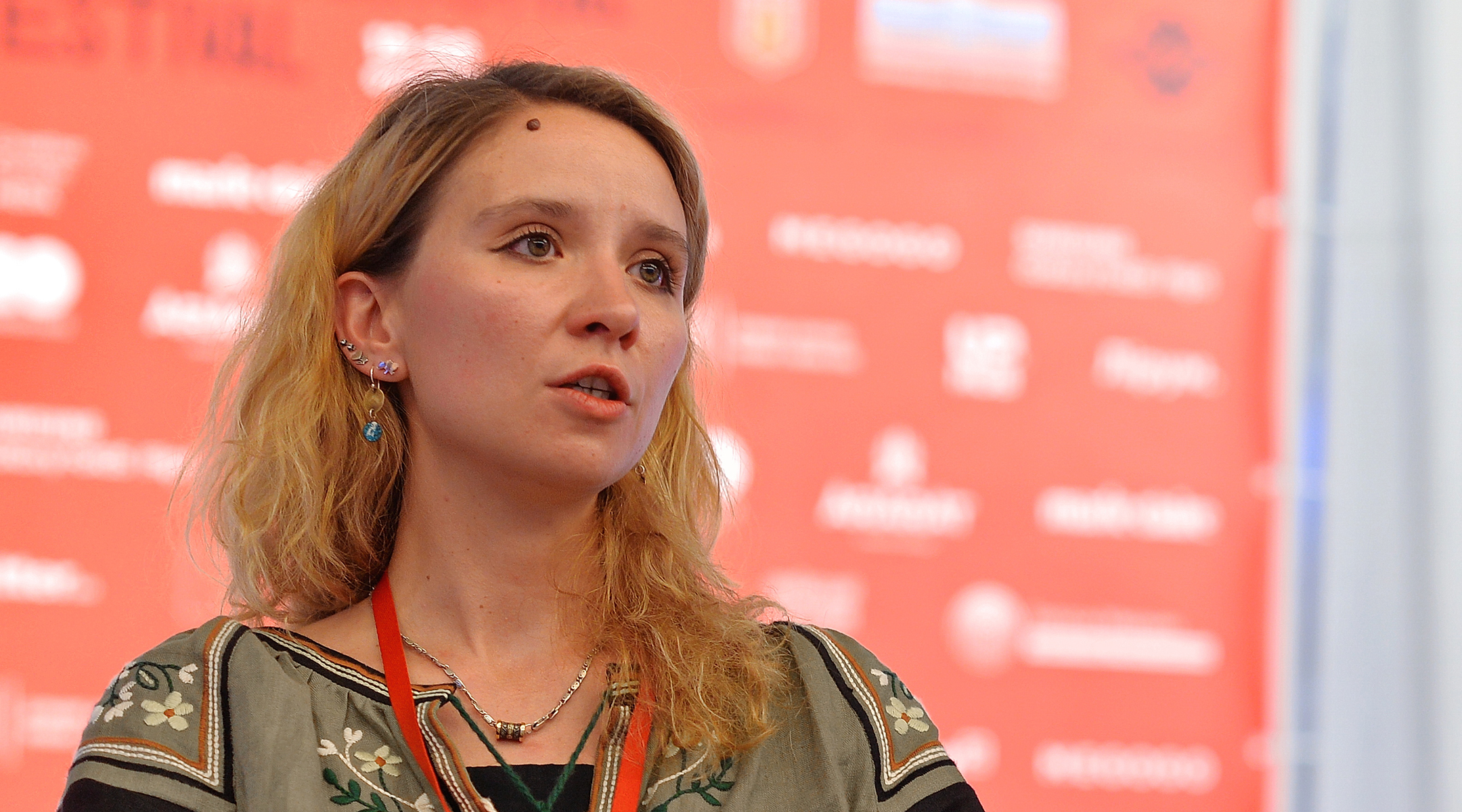
TWO OF THE FILM'S CHARACTERS ARE STILL UNDER OCCUPATION
- Did the filming of "We Will Not Fade Away" end before the full-scale Russian invasion?
- The main filming was completed, but we thought for a very long time whether there would be a story, for example, after the Himalayas, and what part of this story would be included in the movie. We still had thoughts and plans for the shooting. That's why it was not the official end of the filming phase.
- But in fact, after February 24, there was no shooting as such?
- We had planned to shoot on those dates, to record the sound atmosphere with a sound engineer, but we never did. But because of this, I met the full-scale war, in fact, on the train to Donetsk.
- The editing of the film and other work on it continued in 2022, I take it? Did the current events affect the final version of the film and how?
- Yes, it did. In general, this project has gone through several transformations. After the start of the full-scale war, I went to war. And when I returned, I began to review the rough cut. First of all, it was very emotionally difficult to watch it. Because you are looking at a world that no longer exists. And secondly, you realize that there are things that may be valuable to you as a filmmaker, but are no longer so important in the context of this great drama, the tragedy that happened. And, of course, we changed a lot of things in the draft version of the film.
- Were there any dangerous moments during the filming related to the war? Did you have to move the filming to another place or time because of this?
- We didn't postpone anything, only the filming in the Himalayas was postponed several times because of the covid. There was a moment when we didn't believe that we would actually go to the Himalayas, it became such a distant dream for all of us (laughs).
But because of the war at that time, the shooting was not postponed. I cannot say that I am a fearless person, but I was not afraid of explosions. The only thing I was worried about was the characters. Because when you are next to them and the shelling starts, they are like: "Yes, everything is fine". And you realize that they may be used to it, but you, as an adult, are responsible for them. If something happens to them, I'm the one who will be responsible.
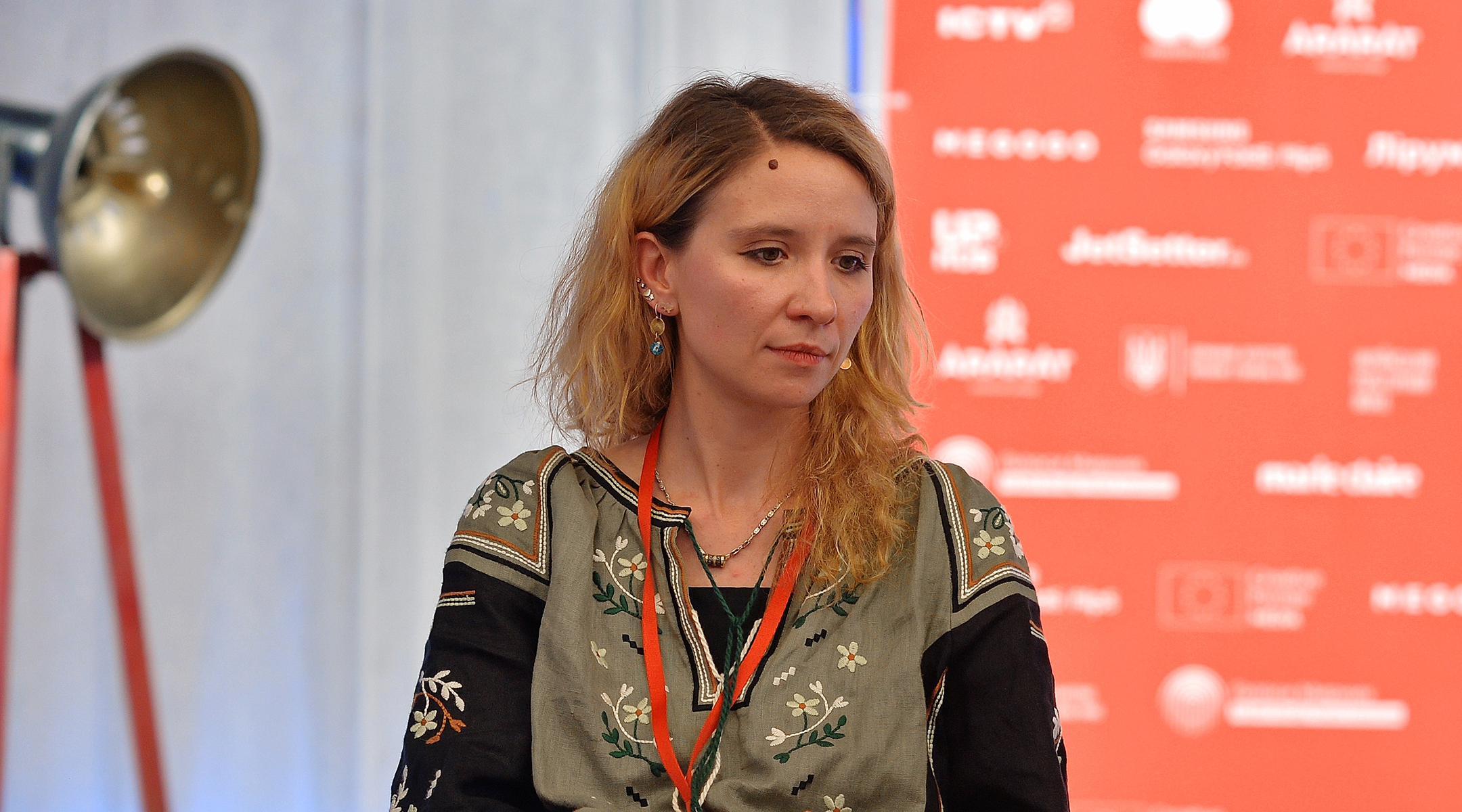
- The protagonists of your film are teenagers from the frontline areas of Luhansk region. How did their fate develop?
- At the end of the film, we tell about their lives now in the credits. Andriy and Ruslana's family lived in Zolote [in the part of Luhansk region occupied since June 2022]. I was there in the first days of the full-scale war. I had almost stopped filming then. I wanted to help them leave, because they were the first line. It was clear that very soon they could find themselves under occupation.
Ruslana's family did not want to leave at first. "Everything will be fine, everything will be fine. Where will we go, who needs us? We have everything here, we have a basement." Andriy's family also refused at first. Their perception of danger was not the same as that of all other Ukrainians. After all, they had lived near the front all these years, and now they were a little more fearful. Of course, everyone understood that this time it was more serious, there was fear and tension, but they were still confident that our defense would hold and did not want to leave their home.
In the end, Andriy's family left when there was almost no one left in Zolote-4 and the village was half destroyed. Unfortunately, Ruslana's family did not leave, and contact with them was lost. I talked to them to the last. In May, when the occupation began, I was already at the front. And then the connection was lost.
Lisa was taken out of Kharkiv by my friend, a Belgian director. He had a Volkswagen T4 minibus, and we could fit a lot of people in it and evacuate everyone, including Ruslana and Andriy's families. And it was possible to take them to Belgium.
We agreed with Lisa and her family right away. They said: "Of course, Lisa needs to be taken out, taken away." She had nowhere to return to because Stanytsia was occupied on the fourth day of the war. We took Lisa from the bomb shelter together with her friend from Stanytsia, who also studied in Kharkiv.
Ilya could not do anything. When Shchastia was completely bombed, it became impossible to get to Stanytsia. Even the evacuation buses that were supposed to take people away before the full-scale invasion could not get there.
Lera's family was also getting ready to leave, but the evacuation buses did not arrive, they could not. Lera had to wait until she was of age for her mother to allow her to leave, and then they miraculously got out of the occupied Stanytsia by very difficult routes. Now she lives in France.
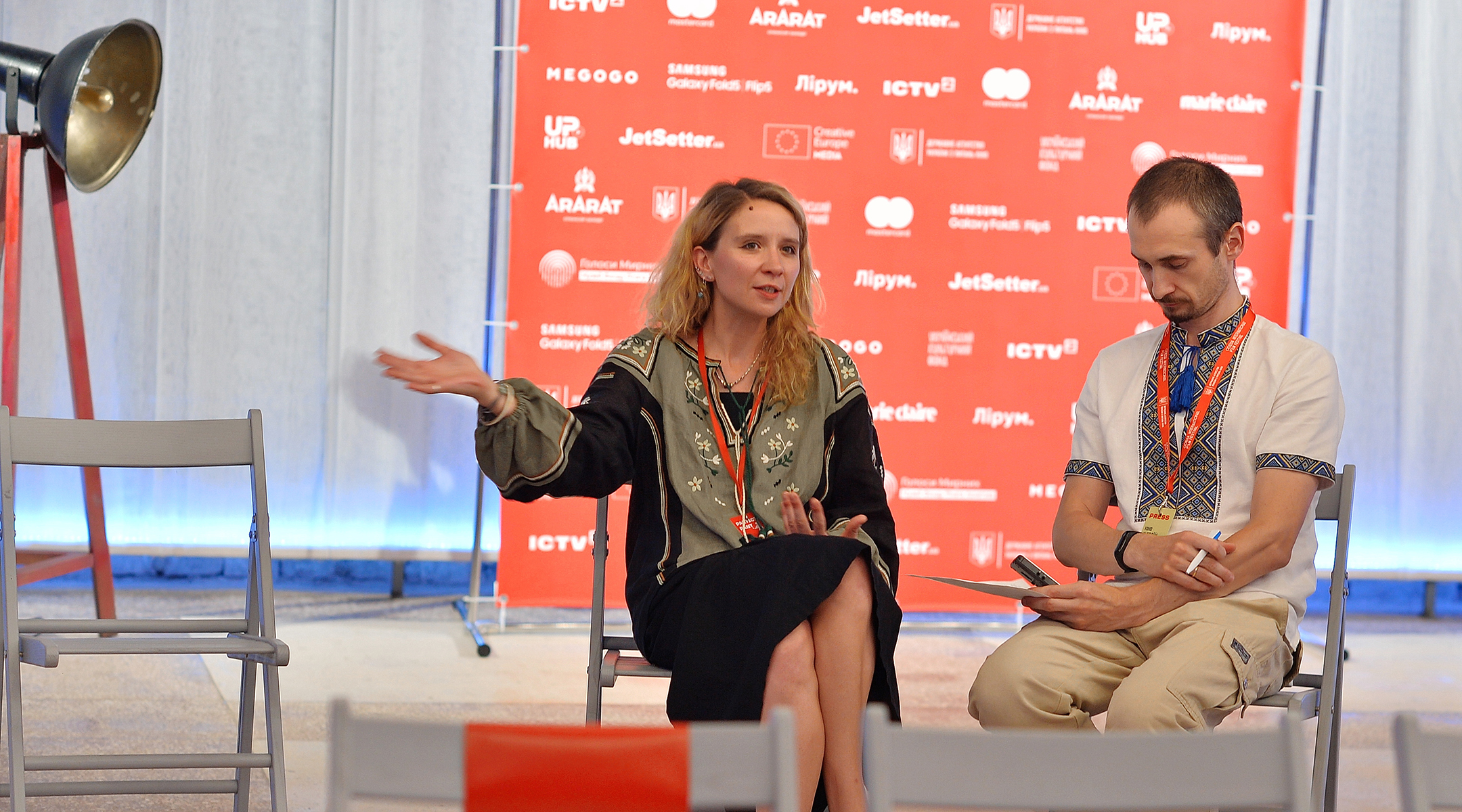
- Do you keep in touch now, with whom is it possible?
- Yes, I do. Everyone who left, who is not under occupation, was at the movie premiere in Berlin. Lisa went to Prague for a festival, to Poland, even without me to a festival in Luxembourg.
Andriy graduated from high school and entered Dnipro Polytechnic University, majoring in electrical power engineering, electrical engineering, and electromechanics. He and his family live in Pavlohrad.
Lisa is studying at a wonderful art academy in Belgium, one of the best students there. It was immediately clear that she was a very talented girl.
THE ATMOSPHERE AT THE PREMIERE WAS JUST MAGICAL.
- Your film had its world premiere at the "Berlinale", and its Ukrainian premiere at the "Docudays UA" festival in Kyiv. Did the European and Ukrainian audiences perceive the film differently?
- The premiere in Berlin was simply magical, very emotional. The 800-seat hall was packed, and we got three standing ovations. It felt like you weren't at some "Berlinale", you were at home. After Berlin, I was even afraid of the screening at "Docudays", worried that something would go wrong. But it turned out to be very warm and very sensual. So for me, there is a certain kinship between these screenings.
- Tell us a little bit about the future of the film. How many festivals has it been screened at, and how many invitations are there in the pipeline?
- I can't tell you the exact number of festivals we've participated in right now, but it's definitely more than 20, even closer to 30. We have won eight awards [since the interview, there have been 11 of them]. There are about 15 more invitations, and I think there will be even more in the fall, because the festival period is just beginning. And there are also special screenings, events where we are invited to present the film. Unfortunately, I can't go to all of them, like the screening organized by the Ukrainian Institute in London.
- When will the film be available to the general public on streaming platforms or in theaters?
- We have to go through various technical procedures, we have to pass the final audit. Many international partners took part in the creation of this film, so we have to make payments and submit the film to the Ukrainian State Film Agency. Of course, I would like these procedures to be completed quickly, so that our film can be released next year.
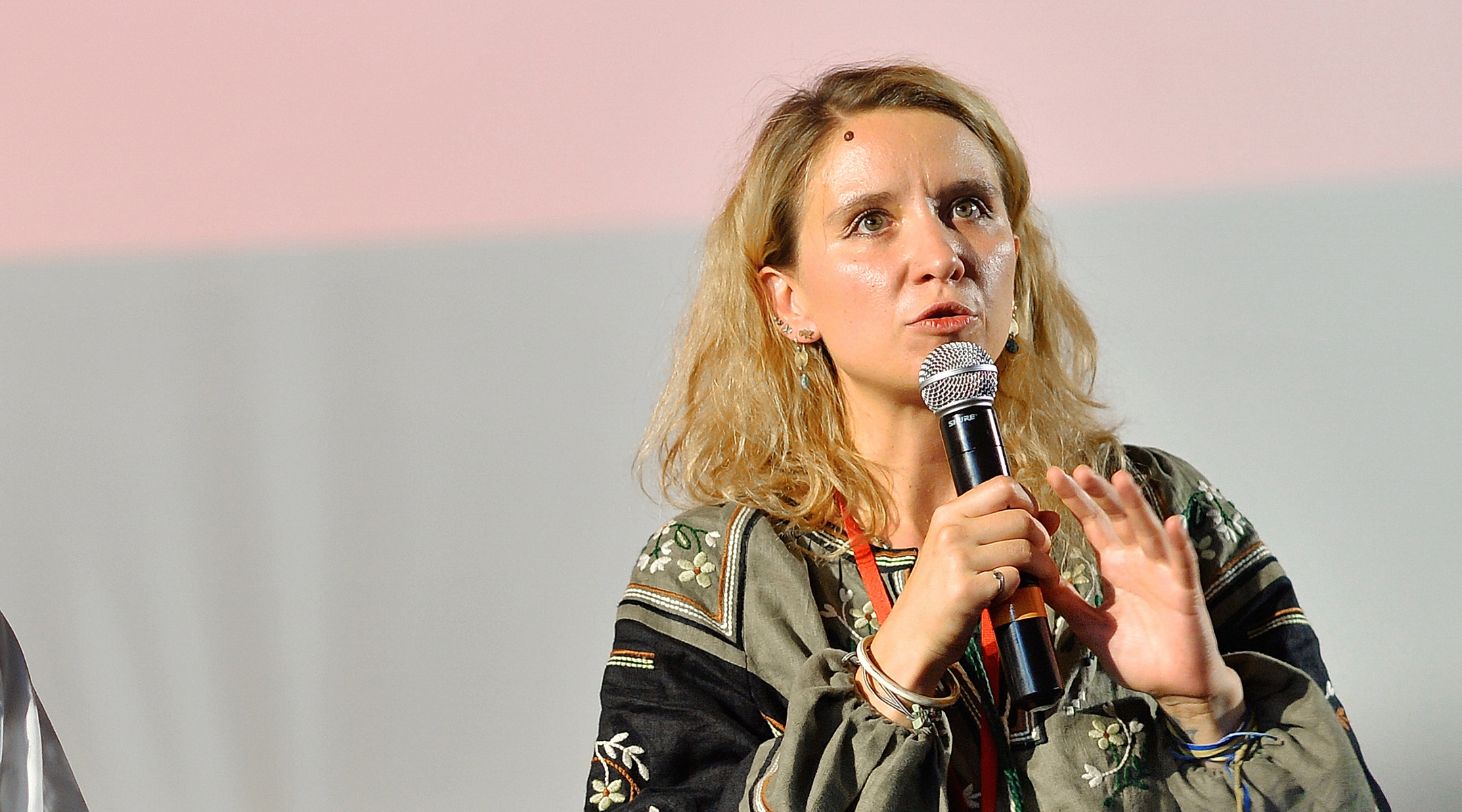
AT THE BEGINNING OF THE GREAT WAR, THE DIRECTOR IN ME DIED
- After the start of the full-scale invasion, you joined the military. At what point did you decide to join the army?
- Almost at the very beginning. I felt that I was absolutely useless as a filmmaker. I had a feeling that I had to act here and now. Back in 2014, when I was filming the volunteer fighters of the DUK [The Ukrainian Volunteer Corps], I had this dilemma: how can you stay behind the camera when you really want to participate in the events directly, want to act and do more? Then I made a promise to myself: if the war continues to grow, I will put the camera away. And I kept that promise.
I had no doubts. I had a feeling that if we all acted now, we could stop the enemy.
Later, months later, you already felt that this was a long time coming, a marathon, not a sprint that you ran super fast. And then other thoughts started to occur. What should I do next? Finish the movie and return to directing or sign a contract with the Armed Forces of Ukraine? I went to finish the movie.
- Was it the decision of Alisa Kovalenko, a citizen, or the director, to join the army?
- It was a civic decision. The filmmaker died in me at that moment (smiles). She was gone, I was filming something mechanically, but I no longer felt that it was important.
- Did you have a chance to film during your service?
- I did, but not for a movie, but to preserve my memory. It was a video album for me. Plus, I thought that something would be left for my son if I died. I recorded a lot of video blogs for him, told him stories. I was just recording my fellow soldiers, filming boring movies, the usual military routine. These were not dramatized scenes, but just a record of reality.
- Have you already planned or are you planning to use the footage somewhere?
- We started developing this story. It's more about my dialog with my son, my internal dialog. I wrote him letters to the future. I thought that if I died, he would grow up, become a teenager, and think: "Why did she do that? Why did I grow up without her?" I wanted to give him answers to these questions. I made some little notes about this existential experience. You can't tell a five-year-old child all this, so I wrote it down to pass it on to him later.
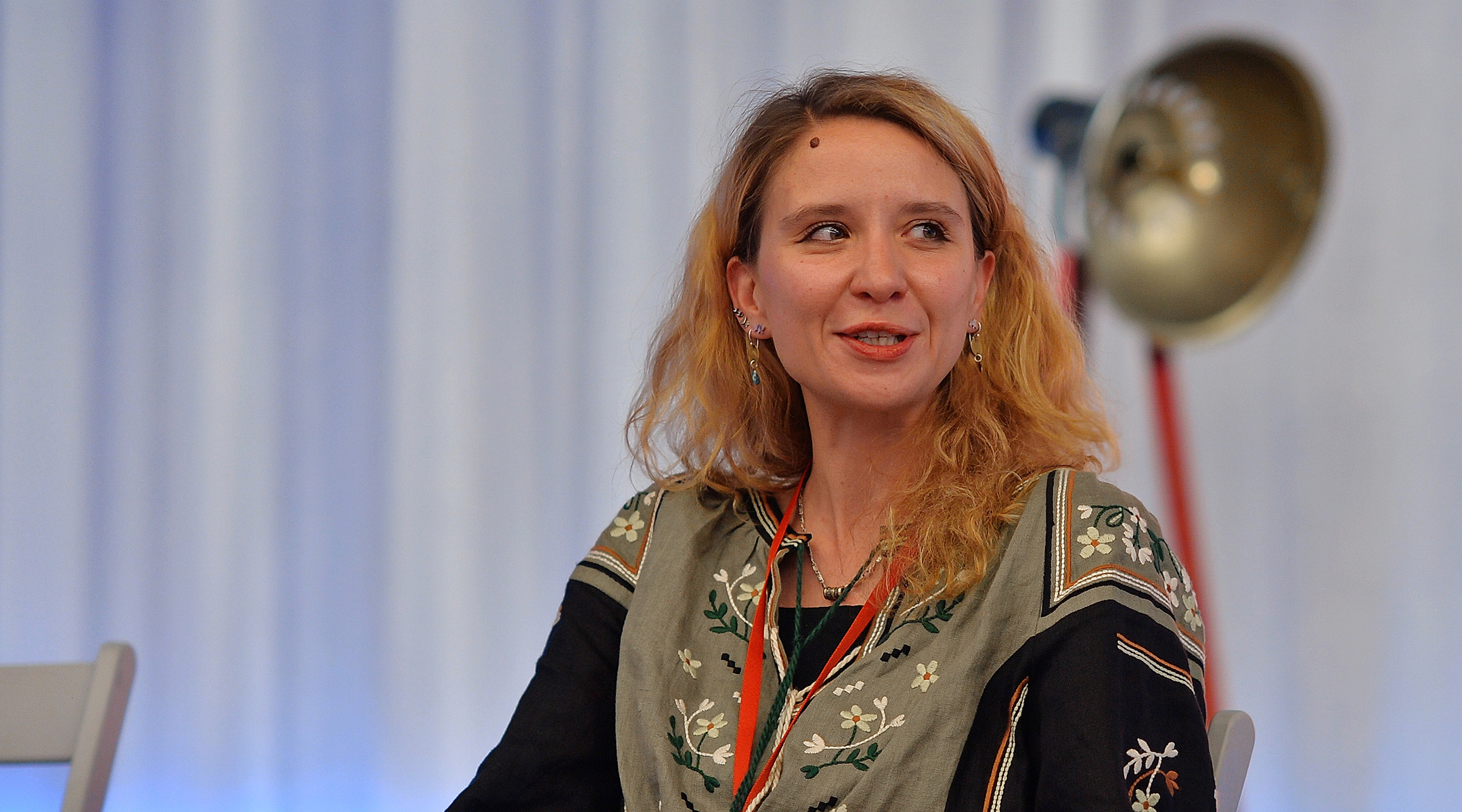
I WAS HELD CAPTIVE BY THE SEPARATISTS FOR FOUR DAYS
- Before the screening, you told us that you served under the command of Valerii Krasnian, a Bukovynian with the call sign "Bars" [Alisa Kovalenko dedicated one of the awards at the Odesa Film Festival to the fallen commander and his family]. He died at the front, and I've heard that a documentary about him is also being made. Have you been contacted by its creators?
- Yes, we are in touch. We have a chat room of our unit. We are aware of the situation.
- Did you have a desire to join the filming of this movie?
- They are still in the process of collecting materials. And as I understand it, there is already a lot of stuff there. I have scenes with "Bars" that were filmed back in 2014. So yes, I was thinking of sending something for this project. But I don't know if they need my video materials.
- The current great war has drawn attention to our country around the world. Including among the cinema community. In your opinion, should films about our war be made more by Ukrainian or foreign directors?
- I think that our voices should be heard. Of course, there are good foreign filmmakers, and I respect many foreign directors very much. But I would still say that our voices should be heard first.
For foreign directors, everything is a little easier. They came here, filmed, and went back to their comfortable homes to continue working on their films. And when we were editing our film, there were shootings and blackouts. I had no electricity or water at home for 36 hours in a row. And I think it's important to support Ukrainian filmmakers.
In addition, because of the global attention to our events, many not-so-good filmmakers have come here. There is a risk that important stories will be lost in the mass of low-quality filming. And we also have directors who shoot not because they have something important to say, but simply because they can. But it's not just about what you can do, it's about some deeper things.
- In 2014, you were taken prisoner. Did you serve then as well?
- I was taken prisoner as a civilian, but of course they immediately said that I was a sniper and a spotter. They labeled everyone with these labels.
- Were you living or working there at the time?
- We were just filming the events on the Maidan. Then my boyfriend Stéphane, a French correspondent, went to Donetsk. Of course, I also went as a documentary filmmaker, because this is part of my country's history. It was very scary to film in Donetsk, which was already occupied. There was already this "administration", the "NKVD" on the 7th or 8th floor, interrogations and all that.
And then I went to the Ukrainian checkpoint to film our guys. And when I was returning to our territory, I had to pass several enemy checkpoints. At one of them, a taxi driver handed me over to the separatists, saying that I was with the Ukrainian military. They pulled me out of the car. They were sure I was a sniper or a spotter. They beat me on the legs and said: "She's definitely a sniper, because she doesn't cry when we beat her". And I was just blocked by something, as if I froze and felt nothing, could not even cry from pain.
Later, they planted some letters on me that I was ratting someone out - they "hung" a bunch of different crimes on me. But in reality, they didn't care who I was-the main thing was that I was a "Nazi" and an enemy to them.
- Where exactly did you stay and how long did you have to spend there?
- In Kramatorsk, which was occupied at the time. I was interrogated by their "administration". In fact, I spent four days in captivity.
- What conditions were you held in?
- Fortunately, I did not go "to the basement". I was taken to apartment by 'Grom', who introduced himself as the head of counterintelligence. He was a Russian officer and did not hide it. He said that he was just on vacation and had come to support people in Donbas, a well-known story. From that apartment, I was taken for interrogation to the 'administration'. The day after I was captured, my boyfriend Stéphane came to Sloviansk, which was also already occupied. There he met with Ponomaryov [Vyacheslav Ponomaryov, the self-proclaimed mayor of Sloviansk during the occupation.] The latter confirmed to him that I was a prisoner and advised Stéphane to escape. But after that visit, they were afraid that I was connected to international journalists. At that time, they still cared about what the world press wrote about them. So they didn't know what to do with me. They were afraid that if they shot me, there would be some kind of scandal. Although this "Grom" told me that if it wasn't for him, I would have been shot, and he saved me from the separatists. I don't know which is true.
- What gave you the strength to stay in captivity?
- Nothing gave me strength. At night I did some kind of sport to exhaust my body and pass out. I was very worried about Stéphane, because they were scaring me that they would go and take him "to the basement". I blamed myself that I was captured and that others might suffer because of me. That's why I tried to exhaust myself as much as possible to fall asleep.
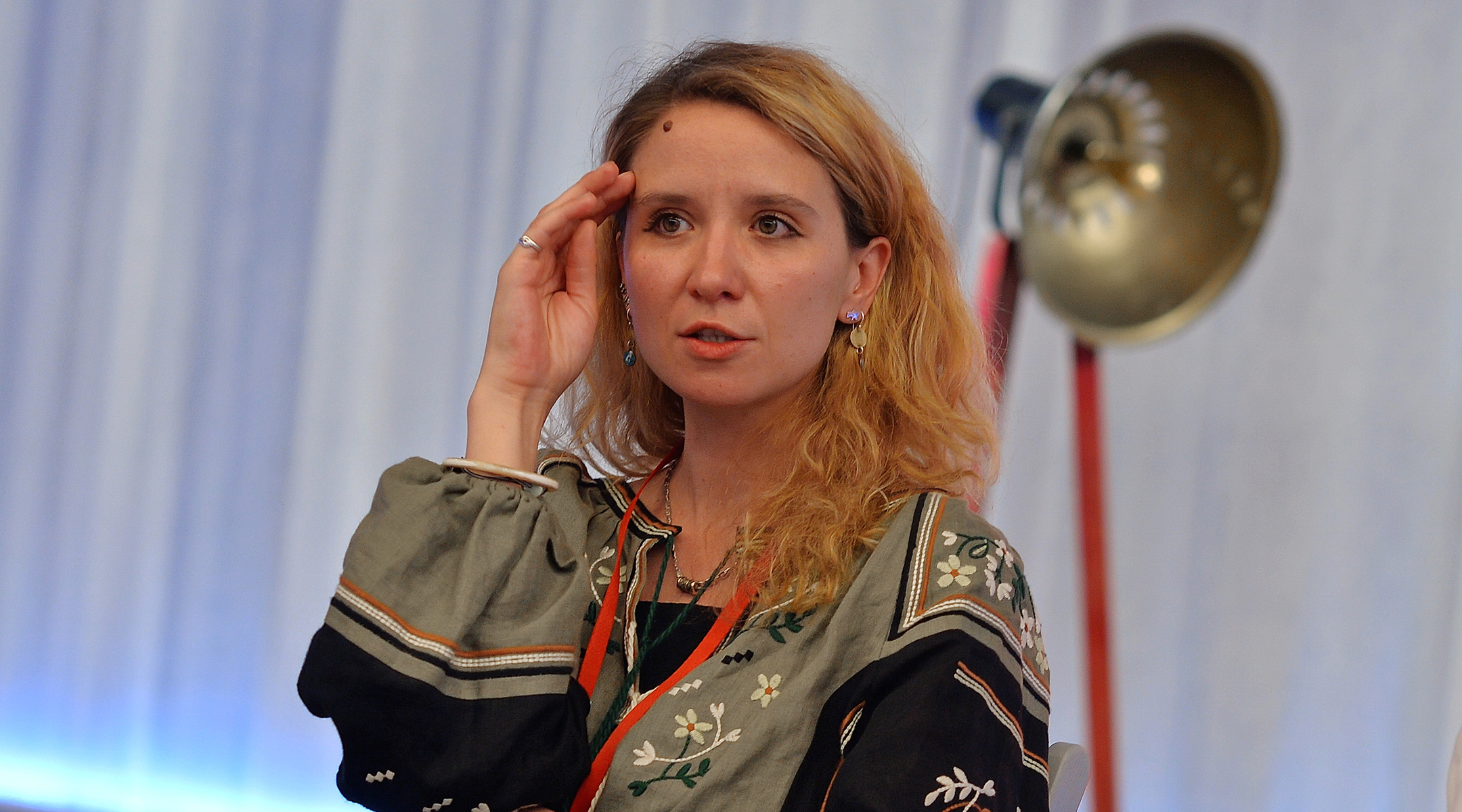
AT THE FRONT, 80% OF THE TIME IS ROUTINE
- In one of your interviews, you said that it took you 8 years to push yourself to start making a documentary about women who returned from captivity. Could you tell us what kind of project it will be?
- I am a member of the organization SEMA Ukraine, which I was invited to by Iryna Dovhan from the very beginning. It is an organization of Ukrainian women who were held captive, in prisons, torture chambers, in the occupied territories, and who suffered sexual violence and torture. We are supported by the "Dr. Denis Mukwege Foundation", a very famous Congolese gynecologist who helped treat women who suffered from sexual violence during the Second Congolese War. This foundation joined us in supporting our activities, including the creation of a film that would document crimes committed against women in Ukraine. But at some point, I just realized that I couldn't do it anymore. It was very difficult emotionally.
And after the outbreak of a full-scale war, when dozens of horrific stories appeared, Iryna persuaded me to do it. I took it on and now I feel that it is really important.
- So it will be a full-fledged documentary?
- I would say that it will be more human rights-based. From a visual point of view, I'm still looking for the right form. I think it will be a musical story of different women who were held captive between 2014 and 2022, and women who suffered after the full-scale aggression. I also added the stories of three women from Kherson who were under occupation. It is very difficult. When Iryna and I went for the first time and listened to four stories in one day, I arrived at the hotel and thought I was going to die. It's like going through all the circles of hell four times. But the next day, I realized that it was important to talk about it and to make sure that every crime remained documented.
- What else are you working on now?
- There is a project that we have already talked about - a "video diary" for my son. It will be more about how we talk to children, about our existential experience. But now I'm working more on the textual component, not the video material: my notes, texts and memories. Because this will not be a classic movie with the usual storytelling, but rather a poetic essay, a very slow movie. There will be footage from the front, but there will be no action. It's about expectations and frontline routine. Because on the frontline, 80% of the time, it's a routine. You just stare endlessly into the fields, and then - bam! - you might get hit. You may not have time to go through a single battle.
- Do you have any desire to return to the army?
- A very strong desire! I keep thinking: "I'm going to finish this and come back". I am in touch with my friends, with my comrades. And it is very difficult to wake up every day and cope with the feeling of guilt. I'm trying, but it doesn't seem to work.
- What was your position there?
- Officially, I was registered as a rifleman. In fact, we were infantry there. Together with the 92nd Brigade, we were there and did everything they did: we went in joint outfits, stood in the same trench... This is a job with simple, straightforward tasks. But the infantry are the ones who die the most. Because they are always the first to go into battle.
Vitaliy Oliynyk, Chernivtsi
Photos provided by the organizers of the Odesa International Film Festival
